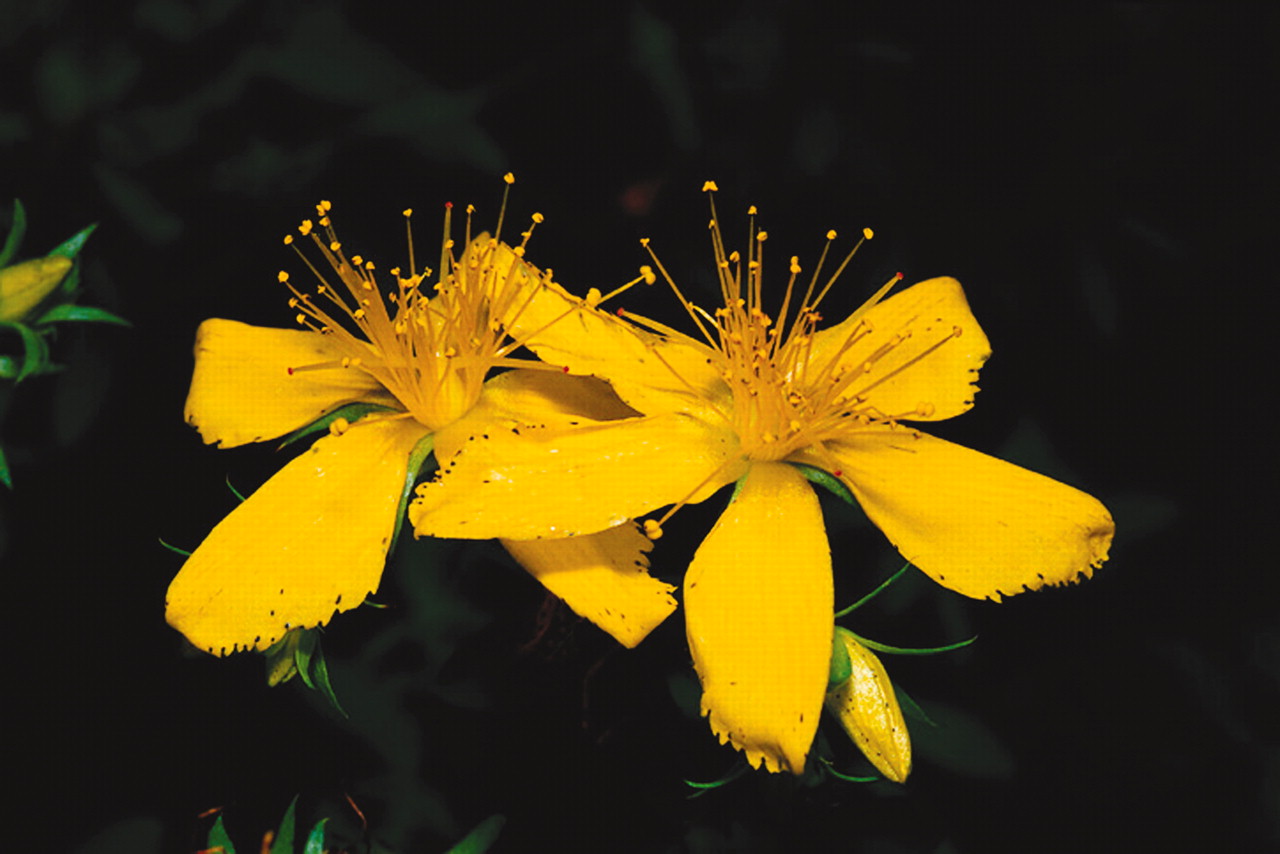New Use Suggested For St. John's Wort
A bushy plant with yellow flowers grows wild in northern California, southern Oregon, and Colorado. However, its history is European and ancient. Greek and Roman legends mentioned it. Early Christian mystics named it after St. John the Baptist. And it was reputed to have various healing powers and to protect people from evil.
Yet, St. John's wort is making medical news again.
While a large clinical trial failed to demonstrate that St. John's wort can counter major depression (Psychiatric News, May 19, 2001), some trials have suggested that it might have some efficacy for less-severe depression.
Though the jury is still out on its effectiveness in mild depression, a new study suggests that the herb may be an effective and safe treatment for somatoform disorders.
The study was headed by Thomas Mueller, M.D., a specialist in neurology, psychiatry, and psychotherapy at Ruhr-University Bochum in Germany. Results appeared in the July/August Psychosomatic Medicine.
During 1999 and 2000, 11 general practitioners, seven psychiatrists, and two internists in Germany enrolled 184 individuals with multiple unexplained somatic symptoms in this study. All met ICD-10 criteria for somatization disorder, undifferentiated somatoform disorder, or somatoform autonomic dysfunction. None of the subjects scored above 12 on the Hamilton Rating Scale for Depression, which excluded those with serious comorbid depression.
The subjects were randomly assigned to a treatment arm that consisted of 300 mg of St. John's wort extract twice a day or a placebo twice a day. Both investigators and subjects were blinded as to which subject received which intervention.
Subjects' somatoform symptoms were assessed with six instruments both at the start of the study an at two, four, and six weeks, when the study ended. One of the instruments used, for example, was the Somatoform Disorders Screening Instrument. It was developed to diagnose and assess treatment outcome of somatoform disorders using ICD-10 and DSM-IV criteria.
On each of the six tests, St. John's wort was found to be superior to a placebo—a highly significant difference statistically. Forty-five percent of the subjects getting the herb were classified as responders, whereas only 21 percent of subjects getting a placebo were so classified—again, a highly significant difference. Finally, tolerability of St. John's wort was found to be equivalent to that of a placebo. The only adverse event that appeared to be possibly caused by the herb was nightmares.
These results, Mueller and his colleagues concluded, suggest that St. John's wort “may be a useful therapeutic alternative in the acute treatment of mildly to moderately severe somatoform disorder.” They cautioned, however, that “efficacy conclusions from this trial cannot be extrapolated automatically to patients suffering from more severe and more chronic somatization syndromes. It further remains open whether 600 mg of St. John's wort daily is the optimal dose and if higher dosages may result in increased efficacy.”
Mueller told Psychiatric News, “This study underlines the efficacy of herbal therapy in mild psychiatric disorders.”
The study was financed by a grant from Lichtwer Pharma GmbH in Berlin, Germany, which manufactures St. John's wort medication.

St. John's wort in bloom.
Picture Quest/Image Ideas
“This is a very exciting study that suggests that St. John's wort may be effective in treating a very challenging cohort of patients, those with somatoform disorders,” said Mark Rapaport, M.D., chair of the psychiatry department at the University of California at Los Angeles, in an interview with Psychiatric News. He is one of the principal investigators in a major NIMH study examining the possible value of the herb in the treatment of minor depression. “The findings are encouraging to all of us interested in identifying alternative treatments for psychiatric syndromes.”
However, he noted, there are several important caveats in interpreting the current study. “The St. John's wort used in this study is from a specific company, Lichtwer, with a long history of outstanding quality control and a consistent approach to the processing of St. John's wort. Individuals going to health food stores and purchasing St. John's wort are not likely to find the same consistency in the quality of the product. Another concern.. .is recent data suggesting that St. John's wort may induce metabolism of cytochrome P-450 3A4, and so the addition of St. John's wort to medically compromised individuals should be done with physician oversight.”
Richard Brown, M.D., of Kingston, N.Y., who presented a course about herbs and depression at this year's APA annual meeting, described the study as“ excellent” and noted that it evaluated “a neglected diagnostic group frequently seen in medical settings.” He said that it raises several questions for future research, “such as the possible effect of higher doses of St. John's wort in this population or the relationship of somatization disorder to posttraumatic stress disorder and depression.”
An abstract of the report, “Treatment of Somatoform Disorders With St. John's Wort: A Randomized, Double-Blind, and Placebo-Controlled Trial,” is posted online at<www.psychosomaticmedicine.org/content/abstract/66/4/538>. Information on the NIMH study of St. John's wort in minor depression can be accessed at<www.clinicaltrials.gov/ct/show/NCT00048815?order=1>.”▪
Psychosom Med 2004 66 538



